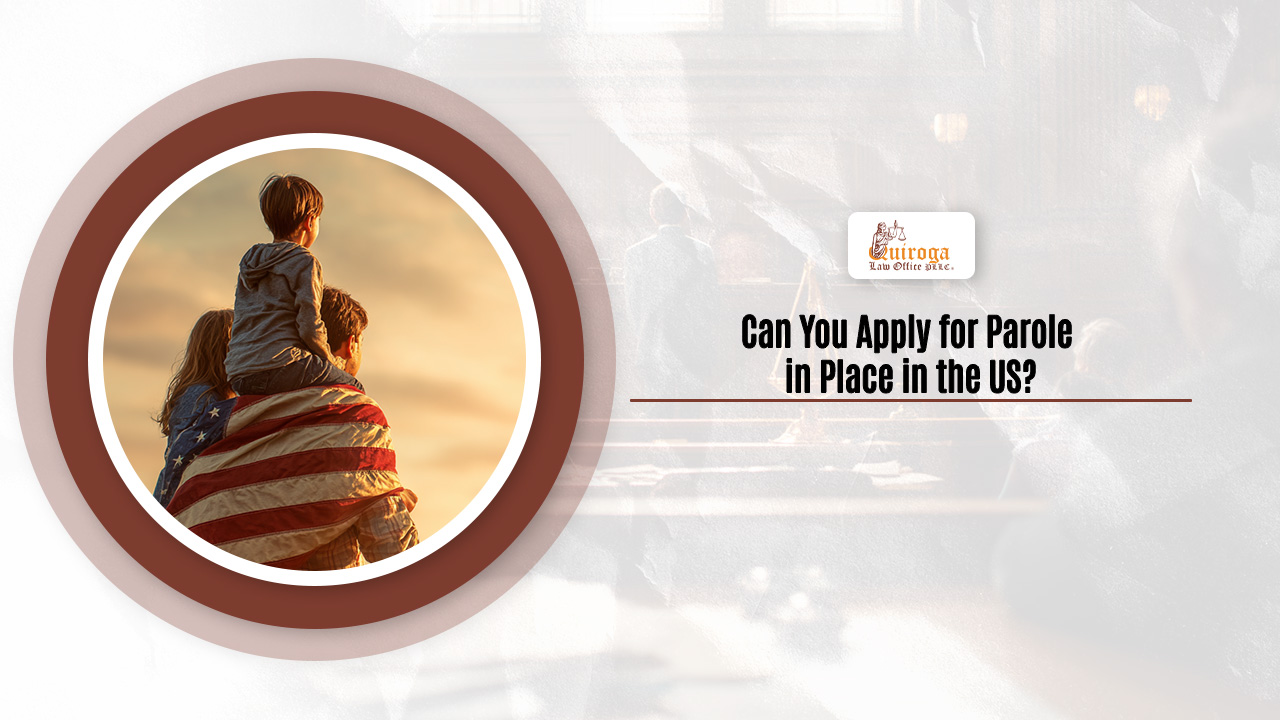Parole in Place is an immigration relief option that can be a valuable opportunity for individuals wishing to remain with their loved ones in the United States. This guide explains everything you need to know about this benefit, including its requirements and eligibility criteria. Read on to find out if this option may apply to you.
What Is Parole in Place?
Parole in Place is an immigration benefit specifically designed for certain family members of active-duty service members, veterans, or members of the Selected Reserve of the US Armed Forces. This permission allows eligible family members to remain lawfully in the US, regardless of how they entered, provided they meet the established requirements.
This program is particularly helpful for individuals who entered the country without inspection, offering an alternative that would otherwise be challenging through standard immigration procedures.
Benefits of Parole in Place
- Protection from Deportation: While you comply with US laws and avoid serious criminal offenses, Parole in Place protects you from deportation.
- Temporary Legal Stay: The benefit is granted for one-year periods and can be renewed as long as the conditions remain valid.
- Work Authorization: While holding Parole in Place, you may apply for a work permit, enabling financial stability for you and your family.
- Possible Adjustment of Status: In some cases, individuals who meet all the requirements can apply for permanent residency (Green Card) through an adjustment of status.
Eligibility Requirements for Parole in Place
To apply for Parole in Place, you must meet specific criteria, including:
- Physical Presence in the US: You must currently reside in the United States.
- Entered Without Inspection or Irregularly: This benefit is specifically for those who entered the US without inspection.
- Relationship with a Military Member: You must be the spouse, widow(er), parent, or child of:
- Active-duty service members of the US Armed Forces.
- Members of the Selected Reserve.
- Veterans (living or deceased) who were honorably discharged.
Important: This benefit does not apply to individuals who entered the US with a visa and overstayed.
How to Apply for Parole in Place
The process for applying for Parole in Place involves multiple steps and requires specific documentation. Here’s how to get started:
- Complete the Application Form
- Fill out the appropriate form with accurate and complete information. Any errors may delay or negatively affect your application.
- Gather Supporting Documents
- Proof of Relationship: Certificates of marriage or birth to establish your connection with the military member.
- Military Status Documentation: Evidence of the family member’s military service, such as proof of active duty or honorable discharge.
- Submit Your Application to USCIS
- Send your completed application and supporting documents to the appropriate USCIS office based on your state of residence. Use a secure delivery method and retain proof of submission.
- Seek Legal Assistance
- While you can apply independently, consulting an immigration attorney increases the likelihood of success.
- Track Your Application
- Once your application is submitted, you can monitor its status online using the receipt number provided by USCIS.
Frequently Asked Questions About Parole in Place
1. Does Parole in Place Lead to Permanent Residency?
No, Parole in Place is a temporary permit allowing legal stay in the US. However, it may enable you to adjust your status and apply for a Green Card if you meet additional requirements.
2. How Long Does Parole in Place Last?
It is granted for one-year periods and can be renewed as long as eligibility requirements are met.
3. Can I Apply with a Criminal Record?
A criminal record may impact your eligibility. Consulting an immigration attorney is essential to assess your specific circumstances.
4. Does Parole in Place Protect Me from Deportation?
Yes, as long as you adhere to US laws and avoid serious legal violations, this benefit offers protection from deportation.
Tips to Ensure a Smooth Application Process
- Double-Check Documents: Ensure all forms and supporting documents are accurate and complete.
- Keep Copies of Your Submission: Retain copies of all documents for your records.
- Consult an Immigration Attorney: Legal guidance can help you avoid common mistakes and prepare a strong case.
- Submit Early: Start the process as soon as you meet the eligibility criteria, as processing times may vary.
Key Takeaways
Parole in Place is a valuable option for family members of military personnel seeking to remain in the US. While it is a temporary solution, it can open doors to long-term legal pathways, including permanent residency, for those who qualify. Taking the time to prepare a complete and accurate application and seeking legal advice can significantly improve your chances of success.
If you have additional questions or need personalized assistance, contact an immigration attorney to explore your options and ensure your case is well-prepared.



